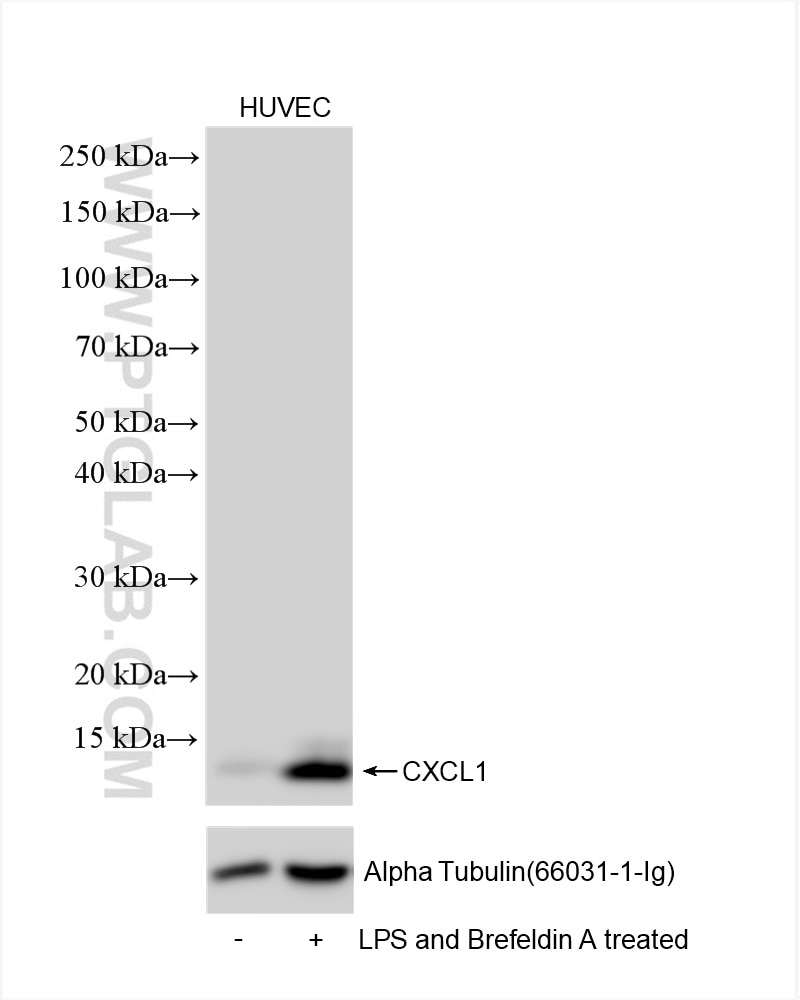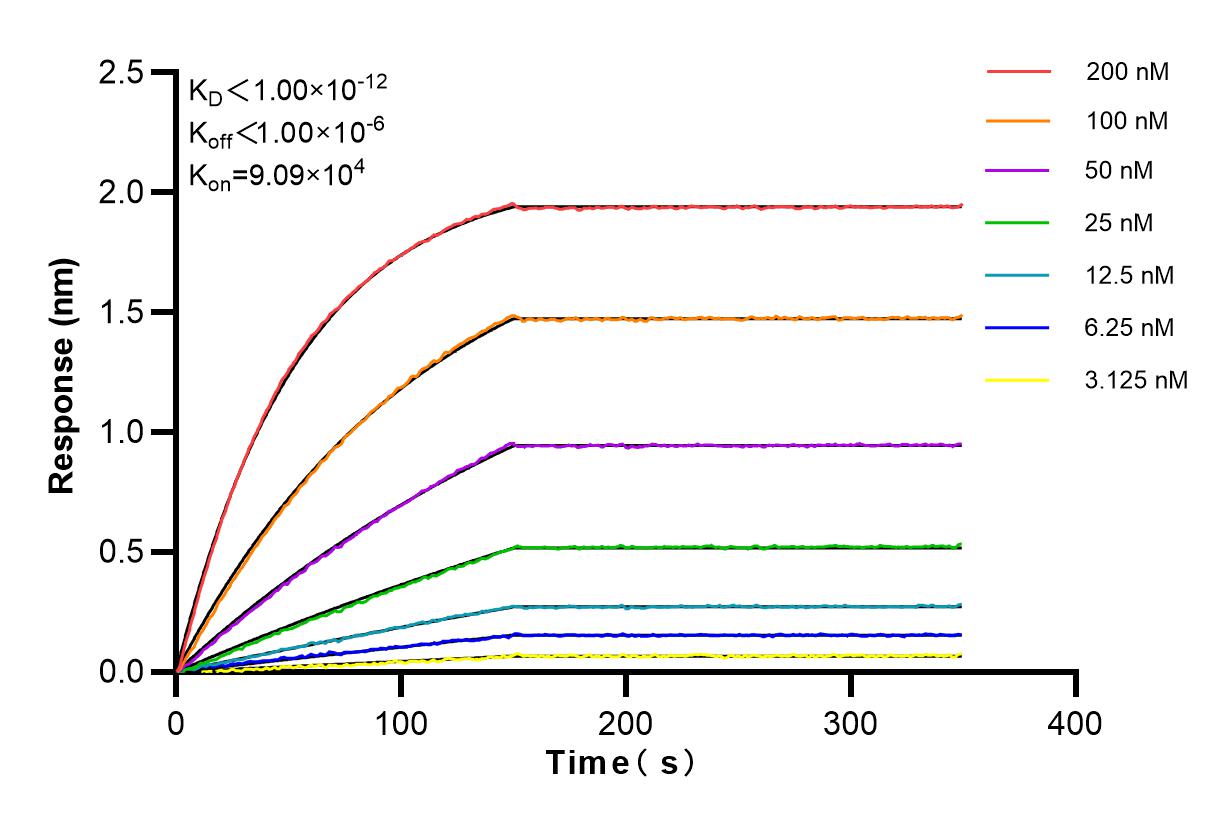Tested Applications
| Positive WB detected in | HUVEC cells |
Recommended dilution
| Application | Dilution |
|---|---|
| Western Blot (WB) | WB : 1:1000-1:4000 |
| It is recommended that this reagent should be titrated in each testing system to obtain optimal results. | |
| Sample-dependent, Check data in validation data gallery. | |
Product Information
83937-3-RR targets CXCL1 in WB, ELISA applications and shows reactivity with human samples.
| Tested Reactivity | human |
| Host / Isotype | Rabbit / IgG |
| Class | Recombinant |
| Type | Antibody |
| Immunogen | CXCL1 fusion protein Ag2917 Predict reactive species |
| Full Name | chemokine (C-X-C motif) ligand 1 (melanoma growth stimulating activity, alpha) |
| Calculated Molecular Weight | 8 kDa to 14 kDa |
| Observed Molecular Weight | 11 kDa |
| GenBank Accession Number | BC011976 |
| Gene Symbol | CXCL1 |
| Gene ID (NCBI) | 2919 |
| RRID | AB_3671519 |
| Conjugate | Unconjugated |
| Form | Liquid |
| Purification Method | Protein A purfication |
| UNIPROT ID | P09341 |
| Storage Buffer | PBS with 0.02% sodium azide and 50% glycerol pH 7.3. |
| Storage Conditions | Store at -20°C. Stable for one year after shipment. Aliquoting is unnecessary for -20oC storage. 20ul sizes contain 0.1% BSA. |
Background Information
CXCL1 a is a member of CXC family and also known as keratinocyte-derived chemokines (KC) or growth-related oncogene (GRO). CXCL1 is expressed by macrophages, neutrophils and epithelial cells. CXCL1 binding specifically to the CXC chemokine receptor CXCR2, is involved in fibrogenesis and angiogenesis. This protein also plays a role in inflammation and as a chemoattractant for neutrophils. CXCL1 is upregulated in some types of human cancer, including colorectal, bladder, breast, prostate and skin cancers.
Protocols
| Product Specific Protocols | |
|---|---|
| WB protocol for CXCL1 antibody 83937-3-RR | Download protocol |
| Standard Protocols | |
|---|---|
| Click here to view our Standard Protocols |





